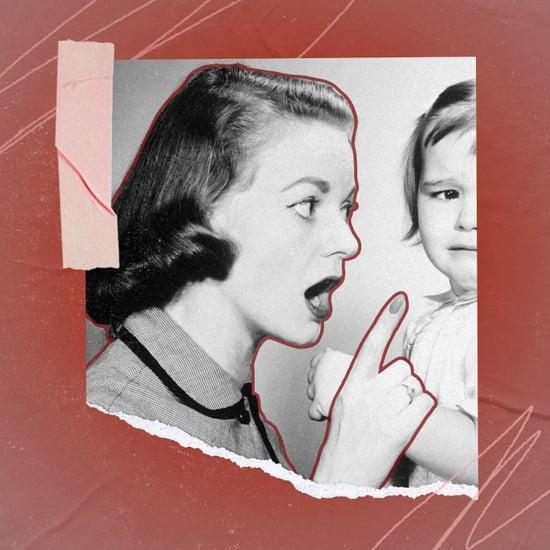How Long Do You Have to Wait to Breastfeed After Drinking
Why Everything You've Heard About Drinking and Breastfeeding Might Be Wrong

At six months pregnant, I found myself drinking yet another glass of lemonade and counting the days until my first glass of postpartum wine. And then it hit me. I wasn't actually three months away from drinking again. Since I wanted to breastfeed, it could be almost another year before I could enjoy my favourite alcoholic beverages. Lemonade is great and all, but I'm more of a rosé girl.
As a mild sense of dread came over me, I decided to educate myself about breastfeeding and booze. My initial Google search came up with some pretty unequivocal advice: you shouldn't drink while breastfeeding.
Alcohol abstinence is not necessary for nursing moms.
I set out to either confirm or deny my worse fears. During a labor and early childhood class, I asked my teacher, herself a mother of four: is it OK to drink while breastfeeding? She said drinking while nursing is no big deal and moved on.
That was more like it, but these two approaches seemed contradictory. Don't drink or don't worry. Both of these couldn't be true, so which one was it?
I started talking to new moms in my network, hoping to find information about the true risk of drinking and breastfeeding. One sent me a viral Slate story, titled: "Everyone Drink Up: this holiday season, there is no reason to pump and dump." The author, a nursing mom herself, explained that it's hard to drink too much while breastfeeding. Even if you fed your baby right after drinking four glasses of wine, she explained, your baby would end up with a blood alcohol level similar to the one her mom would have after drinking an eighth of a Bud Light. While I wasn't planning to pound almost a bottle of wine before breastfeeding, this still didn't reassure me. My takeaway was that alcohol can pass from mom to baby. I wanted to find out how to avoid that completely. And I also wanted to know what would happen if my baby did consume some alcohol-tainted milk.
So I turned to experts. I talked to both Dr. Martha Caprio, a neonatologist at Hassenfeld Children's Hospital at NYU Langone, and Molly Petersen, a certified lactation consultant at Lansinoh. Both assured me that alcohol abstinence is not necessary for nursing moms. And they pointed me toward scientific research and current medical guidelines on the topic. This helped me separate the myths from the facts and come up with an informed game plan. Let's start with the myths:
Myths about Breastfeeding and Alcohol:
- Myth: You shouldn't drink at all while you're breastfeeding. "An occasional drink is acceptable," Dr. Caprio assured me. She tells new mothers that while they should limit their consumption to fewer than one drink per day, waiting two to three hours after drinking does allow for the elimination of alcohol from the breast milk. In other words, by timing your drinking with your baby's feeding schedule, you can safely drink. It also makes sense to have bottles of pump-expressed milk on hand in case your baby can't wait the necessary time.
- Myth: Drinking while breastfeeding is the same as drinking while pregnant. "Pregnancy is very clear," Dr. Caprio said. "There is no safe amount or level of alcohol during pregnancy." That's because the alcohol that the mother is drinking always crosses the placenta and reaches the developing fetus. "Alcohol affects the developing brain. The effects on the fetus can be detrimental and could lead to neurodevelopmental consequences resulting in Fetal Alcohol Effects," she said. Research suggests that consuming alcohol-tainted milk does have a negative impact on a baby, but it's not as severe. (More on that ahead.) In addition, if a mom drinks while she's pregnant, there is no way for her to avoid exposing her baby to the alcohol she consumes. But, as Petersen explains, "with breastfeeding, a mom is able to time when she has a drink to allow the alcohol to clear her system before she feeds or pumps."
- Myth: You have to pump out the milk to get rid of the booze. Often, people talk about pumping and dumping as if it's a way to eliminate tainted milk. It's not. Instead, a mother who has consumed a drink fewer than two hours ago may pump milk to ease the discomfort of full breasts and then dump it because it has alcohol in it. If she pumps or nurses again soon, her milk will still have alcohol in it. According to research, drinking water, resting, or pumping and dumping breast milk will not accelerate elimination of alcohol. The good news is that alcohol is not stored permanently in breast milk but rather constantly filtered out. Just like you don't need a blood transfusion to reduce your blood alcohol level, you don't need to remove your breast milk. Instead, you just need time. So, you can either wait for the alcohol to clear your system, or pump and dump to keep your production on schedule and your breasts from becoming engorged in the meantime.
- Myth: Drinking increases your supply. "Counter to what you may have heard, drinking can actually decrease your breast milk supply," Petersen told me. One study found that the presence of alcohol in breast milk has an overall effect of decreasing infant consumption by 23 percent. When your baby sucks, it starts a hormone response that signals your body to produce milk. Alcohol can blunt this response. Petersen also said alcohol is a diuretic, meaning it reduces the amount of water in your system. "As most breastfeeding moms know, you need to drink a lot of fluids to stay hydrated when you are breastfeeding," she said.
- Myth: There is no risk to the baby if you have a few drinks. As we'll explore ahead, research has shown that alcohol exposure impacts a baby's development. And it can take longer than you think for a few drinks to clear your system.
The Risks to the Baby:
If you drink a can of 5 percent beer, your breast milk won't have 5 percent blood alcohol content but rather something closer to .05 percent. Science confirms that alcohol consumed by a mother passes easily into breast milk at concentrations similar to those found in the mother's bloodstream. In other words: if your blood alcohol content is .05 percent, your breast milk would also have a .05 percent blood alcohol content, about the same as what's in some juices. That means a nursing infant is actually exposed to a fraction of the alcohol the mother ingests. But, you should also note that infants detoxify alcohol at a much slower rate than adults.
Knowing how my body would respond to alcohol while breastfeeding, I wanted to understand the risks associated with having alcohol pass to my child. Here is a closer look at how alcohol can negatively impact a nursing baby:
- Reduce infant motor development: A study of 400 infants found that alcohol ingested through breast milk has a slight yet detrimental effect on motor development in breastfed babies. According to the research, "infants of breastfeeding mothers who had at least one drink daily had a mean PDI (Psychomotor Development Index) score of 98, whereas the infants exposed to less alcohol in breast milk had a mean PDI score of 103." Psychomotor development includes the ability of an infant to turn over, sit, or crawl at will. For toddlers, it includes the ability to walk, talk, and potty train. Fortunately, the same study found that it does not seem to impact mental development.
- Changes in sleep patterns: One study found infants spent significantly less time sleeping during the 3.5 hours after consuming the alcohol-infused milk (56.8 minutes compared with 78.2 minutes).
- Decrease in available milk: As mentioned above, research shows that alcohol can blunt prolactin, making it potentially harder for the baby to get all the food they need.
Although it's up to each parent to decide whether those risks seem significant, a literature review from 2013 that reviewed 41 different studies concluded that special alcohol recommendations for lactating women were not warranted. "Any long-term consequences for the children of alcohol‐abusing mothers are yet unknown," it read, "but occasional drinking while breastfeeding has not been convincingly shown to adversely affect nursing infants." Instead, the study said nursing women should simply follow standard recommendations on alcohol consumption, and the CDC defines moderate drinking as one drink per day for all women.
How Much You Can Actually Drink as a Nursing Mom:
Waiting at least two hours after a drink before feeding or pumping to save milk is a good rule of thumb. But if you want to be more exact, one study put together a chart outlining how long you should wait between drinks — defined as a 12-ounce beer with 5 percent alcohol, a 5-ounce glass of wine with 11 percent alcohol, or 1.5 grams of 40 percent liquor — depending on your weight. For me, this means waiting about 2.5 hours after one drink, five hours after two drinks, and 7.5 hours after three drinks. I found this information helpful, and it confirmed the idea that I should stick to no more than one drink per day.
The average woman should wait two hours seven minutes after one drink, four hours 20 minutes after two drinks, and six hours 30 minutes after three drinks.
While these guidelines helped, I wanted more real-time feedback on how drinking affected my breastmilk. I came across these breastmilk alcohol test strips available on Amazon. Dr. Caprio cautioned that you should not use them to prevent, diagnose, or treat alcohol intoxication in women or nursing babies, but they are sensitive to the presence of alcohol in the milk. That's why I like them. On nights when I'm not quite sure whether I should count that heavy pour of wine or IPA beer as one drink or two, I will test my pumped milk to see if it has any traces of alcohol.
Petersen says that's a fine approach: "If testing breast milk for alcohol makes a mom feel more secure, then by all means I feel she should go ahead and use them," she told me. "But as long as mom is drinking in moderation and allowing enough time for her body to metabolize the alcohol before breastfeeding or pumping, then they aren't really necessary."
The benefits of breastfeeding outweigh any potential downsides of occasional drinking while breastfeeding.
Here's the bottom line: you can drink in moderation when you're breastfeeding. While you should pay attention to how much and the timing, the upsides of breastfeeding outweigh any potential downsides of an occasional glass of wine. As one report put it: "Occasional drinking does not warrant discontinuing breastfeeding, as the benefits of breastfeeding are extensive and well recognised."
After four months, I got my daughter to sleep through the night without eating. That meant I was officially off the hook once I put her down, since I had 12 hours to go between feedings. Today, I still pump before bed, but depending on what I drink, I either save or dump the milk. Still, I find myself sticking to one or two drinks — the torture of dealing with a baby while hungover is a very real risk of drinking while breastfeeding.






